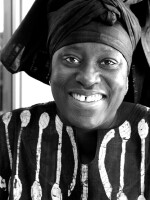ALEX COHEN, Host:
Unidentified Man #3: No. I'm not happy with this result because there are so many rigging all over the place. And the rigging was engaged by all the parties, not only the ruling party. (unintelligible) the parties have engaged themselves in rigging the elections. So I'm not happy at all.
COHEN: We're joined now by NPR's Ofeibea Quist-Arcton, who's in Nigeria. Ofeibea, we heard lots of talk of rigging. What exactly are the complaints? What kind of rigging are they talking about?
OFEIBEA QUIST: Where shall I start? I mean from ballot papers that were missing to ballot stuffing to all sorts of alleged irregularities. And it's not only voters who say they weren't able to vote. The opposition is saying that in opposition strongholds the electoral commission, which they say is biased towards the government, simply did not provide enough ballots for people to be able to vote. So all these things Nigerians are saying makes this either a non- election or a very, very bad election.
COHEN: The standing president is supposed to step down May 29th. There's not a whole lot of time between now and then, what kind of challenges might be able to happen between now and then?
QUIST: As ever in Nigeria, huge challenges. But immediately, probably a legal challenge. Because the opposition, which had not been totally disunited but not totally united before the election, has now come together. Because Umaru Yar'Adua has been declared president they say this was a fraudulent election and that they are going to take it to the courts and challenge it. Initially, they had asked their supporters to come out onto the streets, but 48 hours after the election results were declared that hasn't happened. I'm not sure that Nigerians have got the stomach for it. They feel disappointed, they feel let down, they fell this is a democracy that is meant to happen but hasn't quite happened.
COHEN: Why don't they have the stomach for it? What's missing?
QUIST: Because in 2003 they said the elections were rigged. Even back in 1999, after a return to elected civilian government, after decades of military dictatorship here, people feel that the elections have never quite been right. But they thought 2007 was going to be the year when Nigeria could get it right, when it held credible elections that would be believed in by Nigerians and by the outside world. And you mustn't forget that this is a huge country: 140 million people. It is the giant of West Africa. It is the giant of Africa. It's an oil producing country, it's a rich country, and yet it doesn't seem to be able to just hold free and fair elections.
COHEN: Ofeibea, there were instances of violence during the election itself. What's happened since then, have things quieted down?
QUIST: We've had two sets of violence, if you want. Because of course before these presidential polls and the polls for lawmakers there were state government polls. In those, 50-plus people were reported dead. This time three youngsters, some of the security forces. So a lot of people feel they are not secure. And I think that's another reason why they're not so keen to go onto the streets. Because are they going to clash with the police? Are they going to lose their lives? And for what? Politicians who they feel only come out at election time because they want their vote, not because they're really thinking of the interests of the Nigerian people and of the future of this country.
COHEN: So where does this leave democracy in Nigeria?
QUIST: Ha! That's the question. It depends who you speak to. The outgoing president, Olusegun Obasanjo, admits that the election was not perfect, but he says it's not bad enough to hold a rerun. And then you have other Nigerians say, you know we're the laughing stock of Africa. We, this - we're meant to be the beacons of this continent, but look at us. A disgrace. So democracy, can this country really understand the meaning of the word? The people yes, but the politicians no.
COHEN: NPR's Ofeibea Quist-Arcton thank you so much for joining us.
QUIST: Always a pleasure. Transcript provided by NPR, Copyright NPR.






